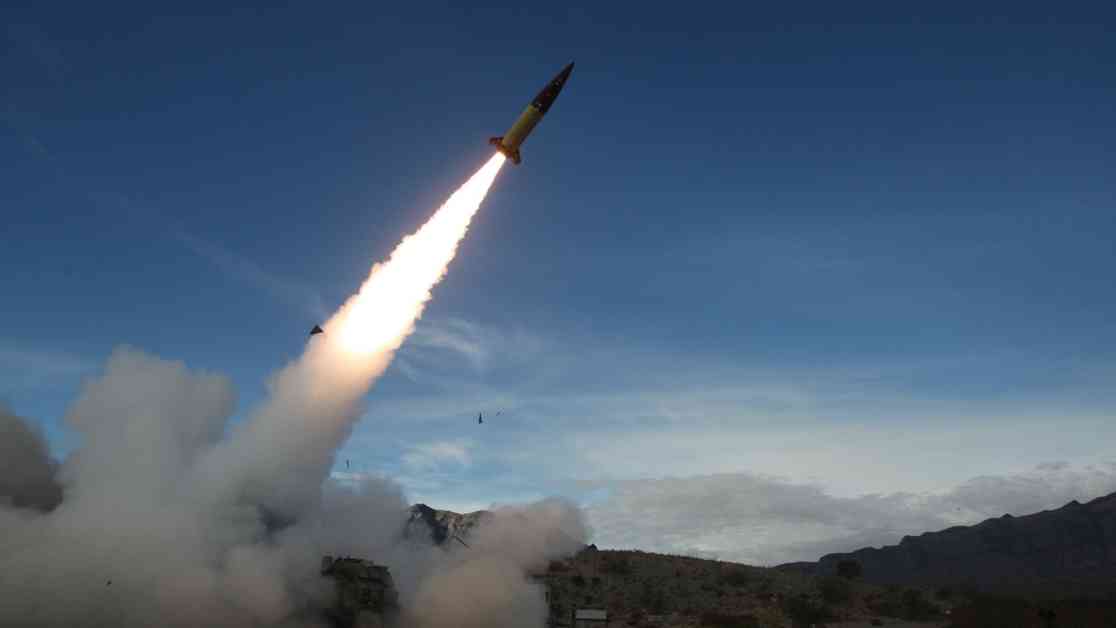Moscow has indicated that it is prepared for a nuclear confrontation after Ukraine received approval to attack Russian territory using U.S.-made long-range missiles. Following the green light from Washington, Ukraine reportedly wasted no time in using American ATACMS missiles to target a Russian military facility in the Bryansk border region. The Ministry of Defense in Russia confirmed the attack, stating that Ukrainian forces had launched six ballistic ATACMS missiles, with five being shot down by air defense systems.
While the reports have not been independently verified, Russia’s Foreign Minister Sergey Lavrov accused the West of seeking escalation by allowing Ukraine to utilize these high-tech missiles. The Kremlin has warned against such actions and recently updated its nuclear doctrine to include scenarios where nuclear weapons may be used in response to threats to its sovereignty and territorial integrity.
As tensions escalate between Russia and Ukraine, there are concerns about the potential impact of Ukraine’s limited use of ATACMS missiles. Some experts believe that the political implications may outweigh the military significance, especially with the upcoming change in U.S. administration. The question remains on how Russia will respond to Ukraine’s use of American weapons and whether it will adhere to its nuclear doctrine in the face of such provocations.
Despite the threats of nuclear confrontation, there are doubts about Russia’s willingness to engage in a full-scale conflict with NATO and other Western powers. While the markets are responding to the heightened tensions, some analysts view Russia’s warnings as a form of posturing rather than a genuine intent to engage in nuclear warfare.
In light of these developments, Russia’s announcement of mass-producing mobile bomb shelters serves as a stark reminder of the potential consequences of a nuclear confrontation. The KUB-M units are designed to protect individuals from various threats, including nuclear explosions, reinforcing Russia’s readiness for any eventuality.
Overall, the situation between Russia, Ukraine, and the West remains tense, with the specter of nuclear conflict looming in the background. While diplomatic efforts may offer a path to de-escalation, the risk of further hostilities underscores the need for continued vigilance and preparedness on all sides.

















